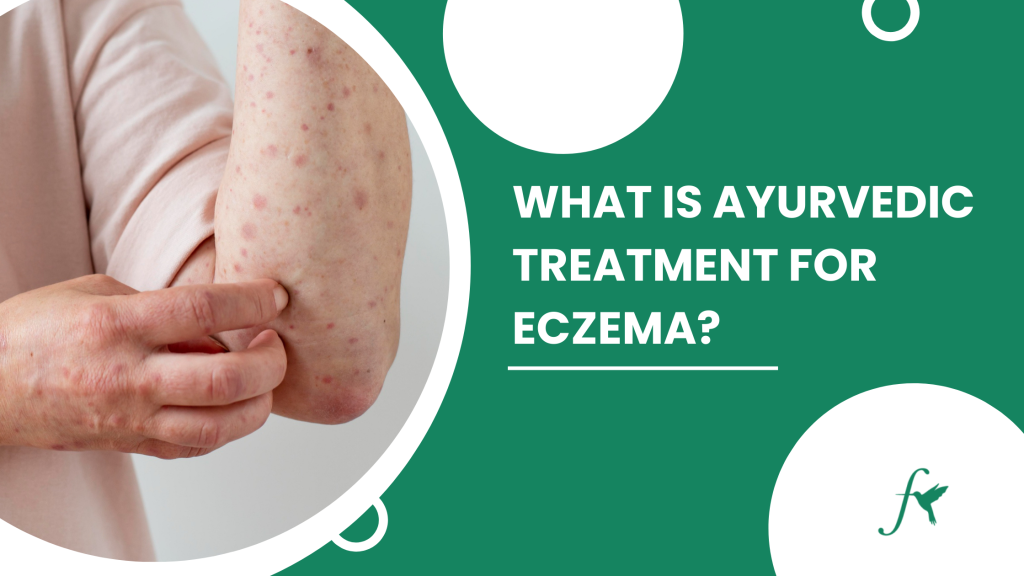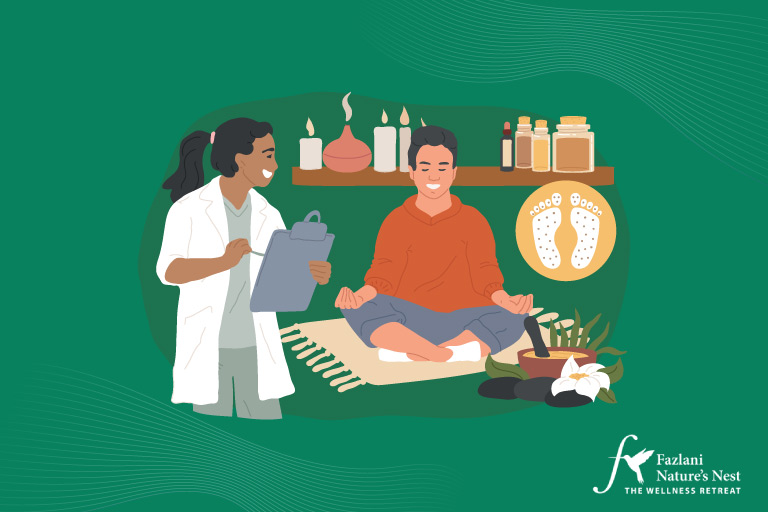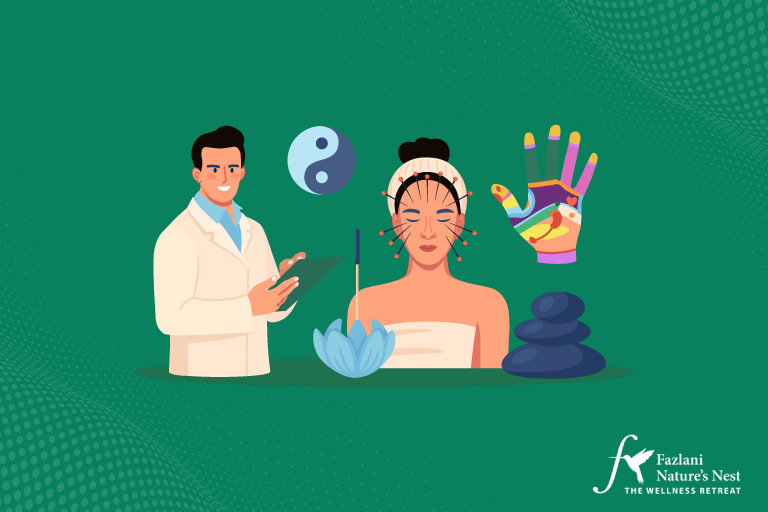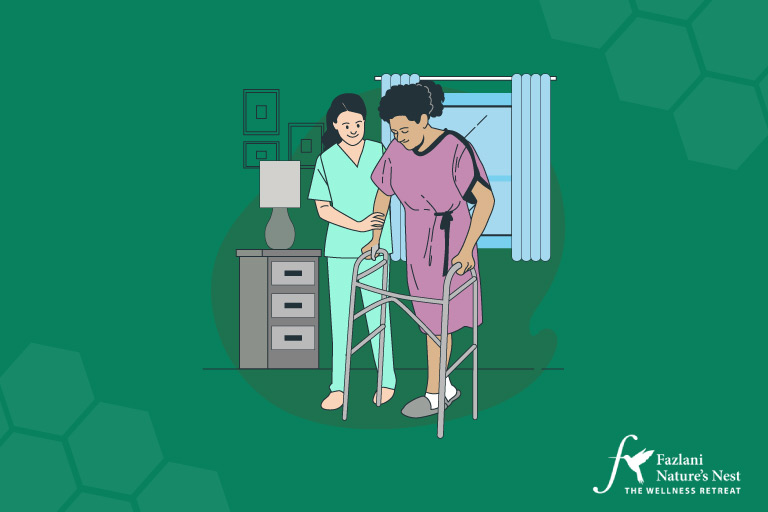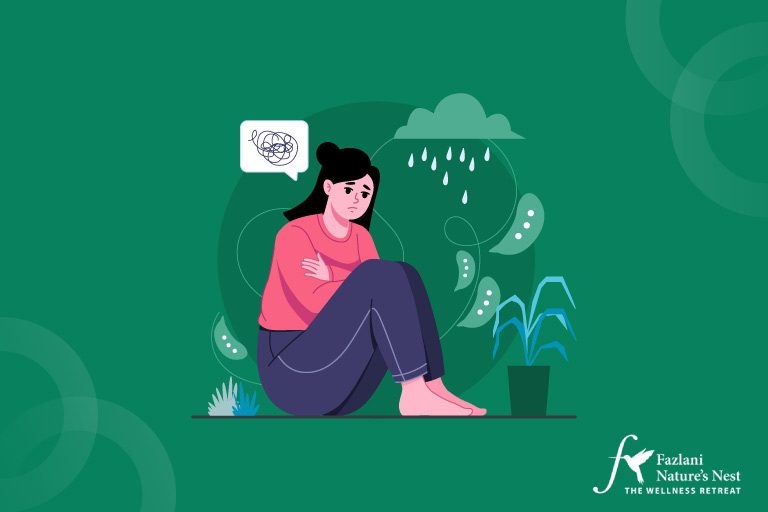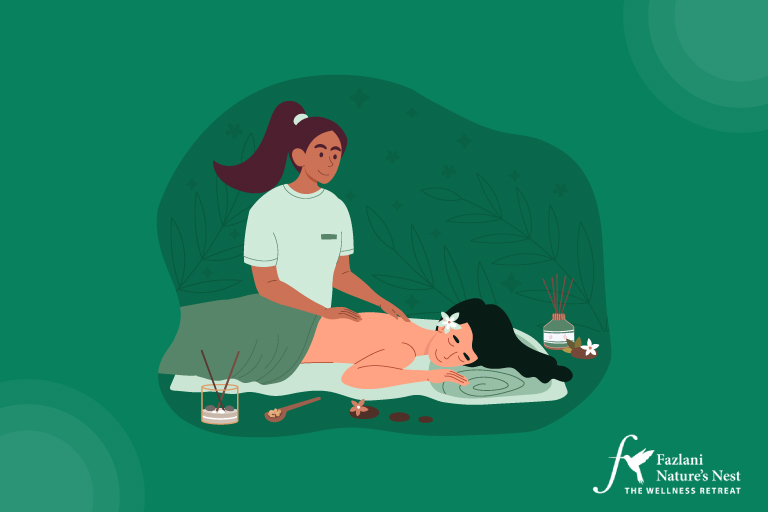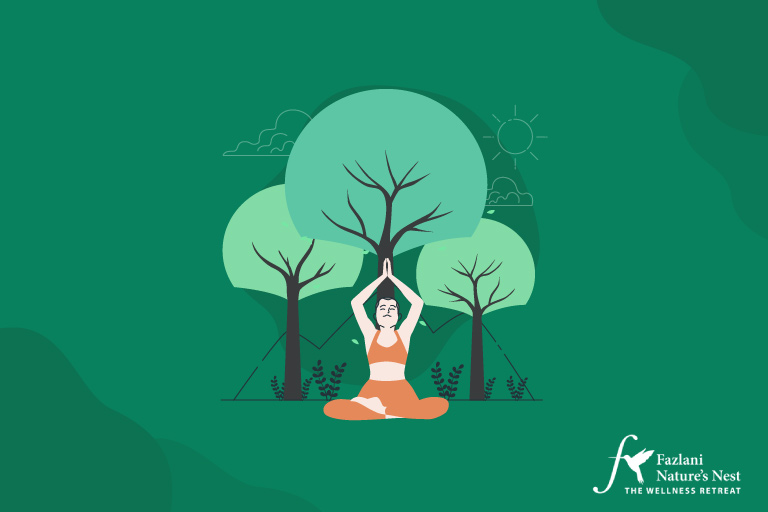Ayurvedic treatment for eczema is a holistic approach rooted in traditional Indian medicine that aims to restore balance to the body, mind, and spirit. Eczema, a skin condition characterized by dryness, itching, redness, inflammation, and pain, can be effectively managed through Ayurveda.
This ancient practice focuses on detoxifying the body, improving digestion, strengthening the immune system, and reducing stress levels. Eczema ayurvedic treatments involve a combination of herbal supplements, Panchakarma therapy, dietary modifications, and lifestyle changes. By identifying the root causes of eczema, ayurveda can offer a holistic approach to ease eczema’s discomfort.
A] What Is Eczema?
Eczema is a skin condition which is characterized by redness, itching, and rash. It often makes the skin dry and flaky and can range from mild to severe discomfort. This condition is also known as dermatitis. It can lead to symptoms like scaly patches, blisters, and skin infections. There are several types of eczema, each with its characteristics. These include atopic dermatitis, contact dermatitis, dyshidrotic eczema, nummular eczema, seborrheic dermatitis, and stasis dermatitis. Genetics, environment, stress, lifestyle, and allergies can trigger it.
People with eczema, should avoid using harsh chemicals and consume certain foods. It’s important to talk to a doctor to learn more about managing and finding eczema and finding the right medicines and creams to help keep it under control.
Eczema comes in different types, depending on the symptoms and how long they last. Let’s take a quick look at the different kinds.
B] What Are The Different Types Of Eczema?
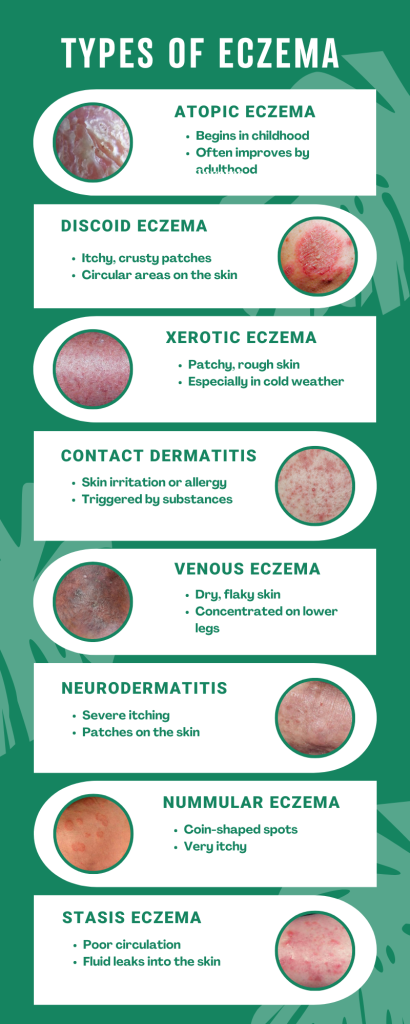
1. Atopic Eczema
It often begins in childhood, usually between 2 months and 5 years old. It tends to improve or disappear by the time you’re an adult. But sometimes, symptoms can come back or appear for the first time when you’re older.
2. Discoid eczema
Discoid eczema, also called discoid dermatitis, is a skin issue known for its itchy and crusty patches. These patches might release pus at times. They typically appear as small circular areas on the skin, varying in size from tiny spots to a couple of centimeters wide. This condition can persist for a long time and affect different body parts.
3. Xerotic Eczema
When your skin gets super dry, especially in cold weather it looks patchy and rough, especially on your arms and legs. Using moisturizer usually helps, but in severe cases, you might need to see a doctor. Other causes of xerotic eczema include low zinc levels or not drinking enough water. If your skin doesn’t improve, see a dermatologist for help.
4. Contact dermatitis
Contact dermatitis occurs when the skin comes into contact with substances that cause irritation or an allergic reaction. These can include certain soaps, detergents, cosmetics, metals like nickel, plants such as poison ivy or poison oak, and chemicals found in latex products. When the skin encounters these triggers, it reacts by becoming red, itchy, swollen, and sometimes blistered.
5. Venous Eczema
Venous eczema shares symptoms with other eczema types but is more common in older individuals. Skin appears dry, and flaky, with redness and visible veins. Often termed gravitational eczema, it concentrates on the lower legs, seeming to sag under gravity’s pull.
6. Neurodermatitis
Also known as lichen simplex chronicus, Neurodermatitis is a type of eczema characterized by the development of one to two patches on the skin. It causes severe itching that intensifies with scratching.
7. Nummular Eczema
Nummular eczema creates round, coin-shaped spots on the skin. It looks different from other types of eczema and can be very itchy.
8. Stasis Eczema
Stasis eczema is more common in people with poor circulation. It occurs when fluid leaks from weakened veins into the skin.
C] What Are The Causes And Symptoms Of Eczema?
Eczema, known as atopic dermatitis, is a condition that makes your skin red, itchy, and swollen for a long time. The exact cause of eczema is not fully understood, but it is believed to result from a combination of genetic and environmental factors. Some common causes and triggers include:
1. Genetics
According to research, there is a 75% chance of inheriting eczema if any one of the parents has eczema. It tends to run in genes, suggesting a genetic predisposition to the condition.
2. Immune System Dysfunction
People with eczema often have overactive immune responses that lead to inflammation and skin irritation.
3. Environmental Factors
Allergens such as dust mites, pet dander, pollen, and certain foods can trigger eczema flare-ups. Additionally, irritants like harsh soaps, detergents, and fabrics can exacerbate symptoms.
4. Dry skin
Individuals with eczema typically have a defective skin barrier, leading to increased moisture loss and susceptibility to irritants.
Discover Natural Relief for Eczema. Start Your Wellness Journey With Ayurveda Today.
Common symptoms of eczema include:
1. Itchy skin
Itching is one of the symptoms of eczema and can range from mild to severe, often becoming unbearable for some individuals. This persistent itchiness can disrupt sleep, affect daily activities, and lead to excessive scratching, which further damages the skin.
2. Redness
Affected areas of the skin typically exhibit noticeable redness or inflammation. This redness can vary in intensity depending on the severity of the eczema flare-up and may be accompanied by warmth and tenderness.
3. Dry, scaly patches
Eczema often manifests as dry, rough, and scaly patches of skin. These patches may appear on various parts of the body, such as the hands, arms, legs, face, and neck. Over time, the skin may become excessively dry, leading to cracking, flaking, and thickening of the affected areas.
4. Blistering or oozing
In more severe cases of eczema, particularly during acute flare-ups, the skin may develop fluid-filled blisters or weeping lesions. These blisters can rupture, causing the affected areas to ooze clear fluid, further contributing to skin irritation and discomfort.
5. Thickened skin
Prolonged scratching and rubbing of itchy areas can result in thickened, leathery skin, a condition known as lichenification. This thickening occurs as a protective response to chronic irritation and can make the skin feel rough and hardened.
D] What Are The Ayurvedic Remedies For Eczema?
1. Change In Diet
Consuming a plant-based diet rich in nutrients like essential fatty acids, zinc, vitamins A and C are good for managing eczema. You can also include foods such as turmeric, ginger, leafy greens, aloe vera juice, and licorice tea while avoiding processed foods, spicy dishes, dairy, and excess sugar.
2. Lifestyle Changes
Adequate hydration is vital for healthy skin, and Ayurveda suggests drinking warm water to aid digestion and detoxification, indirectly benefiting skin health. Stress worsens eczema symptoms, so Ayurveda emphasizes stress management through practices like yoga and meditation. To complement this, a gentle skincare routine using natural products maintains skin moisture balance.
3. Detoxification (Panchakarma)
Panchakarma therapy is a fundamental Ayurvedic treatment for managing eczema. This therapy involves a series of cleansing procedures aimed at detoxifying and rejuvenating the body by removing toxins. Treatments like Vamana therapy and Virechana therapy in panchakarma are recommended in Ayurveda to cleanse the body, balance the doshas, and support the immune system in addressing eczema symptoms.
Further Read: Panchakarma: Know Everything About the Benefits of this Ayurvedic Approach
4. Herbal Remedies
Ayurveda offers a variety of herbal remedies such as turmeric, which is rich in anti-inflammatory. Curcumin helps alleviate symptoms, while neem’s antimicrobial properties make it effective when applied topically. Sandalwood’s cooling qualities help balance aggravated pitta dosha symptoms on the skin, and aloe vera gel soothes and moisturizes the skin. Additionally, herbs like Triphala, Shatavari, Raktha Chandanam, and Tulsi have anti-inflammatory and antibacterial properties, preventing eczema bacteria formation.
5. Topical Remedies
You can use aloe vera gel for its soothing and anti-inflammatory properties. Coconut oil moisturizes and reduces inflammation, while witch hazel soothes irritated skin. Oatmeal relieves itching and inflammation, and chamomile has anti-inflammatory and calming effects.
Dealing with eczema can be tough, but Ayurvedic medicine has effective solutions that can ease discomfort and enhance well-being. At Fazlani Nature’s Nest, a wellness center in Mumbai, personalized treatments are offered for eczema and other health issues. Our skilled team provides tailored therapies like Panchakarma, Abhyanga, Shirodhara, and Nasya, aiming to reduce inflammation, detoxify the body, and induce relaxation. What sets Fazlani Nature’s Nest, apart is our holistic approach, which targets the root causes of eczema through lifestyle adjustments and rebalancing the body.


